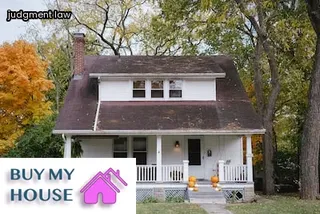It is important for New Jersey landlords to understand the regional laws surrounding abandonment of property by tenants. All states have specific rules that govern how the landlord must handle the situation when a tenant vacates the premises and leaves behind personal belongings.
In New Jersey, state law requires landlords to store abandoned items for at least 30 days. This gives the tenant an opportunity to retrieve their possessions, but if they fail to do so within that time frame, the landlord may dispose of them in any manner they choose.
Additionally, landlords should make sure they are aware of any local ordinances regarding abandonment since these can sometimes vary from state or federal regulations. Knowing exactly what is required of them will help ensure that landlords act in accordance with all laws and regulations when dealing with abandoned property left behind by tenants.

When it comes to dealing with abandoned property left behind by tenants, New Jersey landlords must know when to start the process of abandonment. In general, landlords should begin the process as soon as it is clear that the tenant has vacated the property and has no intention of returning.
This could include failing to pay rent for an extended period of time or leaving personal belongings behind without any explanation. Landlords should also be aware of any local ordinances that dictate when a tenant is officially considered “abandoned”.
It is important to understand all local laws and regulations before taking any action regarding abandonment. If the tenant has not formally informed the landlord that they have left and there are signs that they have abandoned the property, then it is wise for the landlord to take steps towards initiating the abandonment process.
When it comes to dealing with abandoned property left behind by tenants, New Jersey landlords have certain rules they must follow. The landlord must store the tenant’s items in a safe and secure place, such as a locked storage room or unit, to protect the property from theft or damage.
They should also provide adequate notice to the tenant of their intention to store and dispose of the items if they don’t respond within a specific time frame. The landlord must also keep records of any items they take possession of and maintain a list of who has access to the space where the items are stored.
Additionally, if there is any sale or disposal of goods, the landlord must ensure that all proceeds go directly back to the tenant from whom it was taken. Finally, landlords should know what types of items can and cannot be disposed of according to local laws and regulations.
Following these rules will help New Jersey landlords properly manage abandoned property left behind by tenants in an efficient and compliant manner.

When a tenant leaves behind their property upon vacating their rental, landlords can incur significant costs to store the items until they are collected. Depending on the state and local regulations, landlords may be able to seek reimbursement for these storage costs from the tenant or other authorities.
In New Jersey, landlords should check local regulations and speak with an attorney to ensure that they are following the appropriate steps in recovering their storage costs. Not only can reimbursements help cover storage fees, but they may also provide additional revenue if there is no rental income while a unit is vacant.
Landlords should take all necessary steps to document their expenses and pursue any available options for reimbursement. Ultimately, this will not only help them recoup their losses from a tenant's abandonment of personal property, but it could also provide additional support for future vacancies.
When a tenant abandons their property in a rental unit, New Jersey landlords must take appropriate steps to dispose of the personal items. It is critical that landlords handle abandoned property with care and respect as they would their own.
The most common method for disposing of abandoned property is by donation to a non-profit organization. This can be done through an online auction site or by contacting the nearest charity organization.
Landlords should also consider selling the items at a flea market or consignment shop. In some cases, if it is not possible to donate or sell the items, they may need to be discarded at a local dump or recycling center.
Before discarding anything, however, landlords should always check with their state and local ordinances as there may be regulations regarding disposal of personal possessions left behind by tenants.

When a tenant fails to pay rent and abandons their property, it is up to the landlord to distribute any sale proceeds from the abandoned property. In New Jersey, landlords must first provide notice of such a sale by publishing an ad in a newspaper.
Next, they must abide by state law when distributing the proceeds. The law states that the tenant must receive any money left over after paying for expenses associated with storage and sale of the abandoned property.
If there is no money left over or if contact information for the tenant cannot be found, the money remains with the landlord. It is important for landlords in New Jersey to understand how to appropriately deal with abandoned property so as not to face any legal consequences from mishandling funds from a sale of abandoned property.
When a tenant leaves behind abandoned property, New Jersey landlords must take the necessary steps to properly notify the tenant of the disposal. This includes providing notice of the landlord's intent to dispose of the abandoned items, as well as a list of all items included in disposal.
The notice should be sent via certified mail or other reliable source, and must be sent at least 15 days prior to disposing of any property. Additionally, landlords must provide contact information on how tenants can reclaim their property if they choose.
It is important for landlords to remember that they are required by law to store any remaining property for at least 30 days after abandonment before disposing of it. Making sure that tenants are properly notified is essential in ensuring that landlords adhere to the laws set forth in New Jersey and avoid any legal issues.

If a tenant fails to act on abandoned property left behind, New Jersey landlords should take steps to protect their rights and seek legal counsel. Landlords should first issue a written notice to the tenant, giving them a certain amount of time to remove the items and provide proof of removal.
If the tenant fails to respond in the allotted timeframe, then landlords can move forward with disposing or storing the items. In some cases it may be possible for landlords to recover lost rental income from tenants by disposing of the belongings and deducting any associated fees from their security deposit.
However, this cannot be done without seeking professional legal advice as laws vary depending on locality. Additionally, landlords must ensure that they are abiding by local regulations regarding disposal of tenant’s possessions and document all transactions in case of future disputes.
It is important for landlords to understand their rights when dealing with abandoned property left behind so that they can take the necessary steps to protect themselves financially and legally.
When a tenant moves out and leaves their personal property behind, the landlord has a legal obligation to try to contact them. Sometimes, landlords may find it difficult to locate their tenants in order to give notice.
To begin, it's important for landlords to collect the tenant's contact information when they move in (such as home address, cell phone number, email address, etc. If the tenant does not provide any contact information or provides incorrect information, landlords should check public records such as local court filings or voter registration rolls.
Additionally, landlords can send certified letters to the last known address of the tenant or conduct an online search using social media platforms such as Facebook or LinkedIn. Finally, if all other efforts fail, landlords can hire a professional skip-tracing service that specializes in locating individuals who are unresponsive or have moved without leaving an updated address.
With these tips in mind, New Jersey landlords can take the necessary steps to locate their tenants so that they can give notice and properly dispose of any abandoned property left behind by former tenants.

It is important for New Jersey landlords to set a final date for when the tenant must vacate the property prior to notifying them.
Tenants should be given adequate notice of the termination of their lease and landlords are obligated to provide them with sufficient time to gather their belongings and leave the premises.
If a tenant does not vacate by the specified date, then New Jersey landlords are within their rights to take action in order to recover any abandoned property left behind.
Establishing a final date for when tenants must vacate can help ensure that both landlord and tenant understand what is expected and help reduce any potential legal issues that may arise from abandoned possessions.
When a tenant leaves behind property in their rental, the landlord must take steps to reclaim it. First, the landlord should serve the tenant with a notice that outlines the terms for reclaiming the items, such as when and where they must be collected.
If the tenant fails to respond or collect the items after receiving this notice, landlords in New Jersey have several options for what to do next. In some cases, landlords may choose to donate the items of value to charity or sell them at public auction.
The proceeds from these sales can be used to cover any unpaid rent or other costs incurred by the tenant's abandonment. Landlords may also store abandoned property in a secure location and then charge tenants for storage fees until they come forward and claim their belongings.
Regardless of which option is chosen, landlords should always document their efforts and keep detailed records of how abandoned property is handled in order to protect themselves from legal disputes with former tenants.

As a New Jersey Landlord, you may find yourself in the difficult position of having to manage and protect property that has been left behind by a tenant. It is essential to take the necessary steps to ensure that the abandoned property is safe and secure while you wait for it to be legally disposed of.
You should research your state’s landlord-tenant laws regarding abandoned property, as well as any additional local ordinances or regulations. Before disposing of any items, landlords must provide written notice that outlines their intent to dispose of the property if not collected within a certain time period.
Additionally, landlords should document all communication with tenants regarding abandoned property and keep records of any attempts made to return personal items. During this waiting period, it is important to store the abandoned property in a secure area such as a locked storage unit or locked office space.
Take extra safety measures such as setting up an alarm system or surveillance cameras if needed. Finally, be sure to document any damage caused by the tenant during their tenancy so that these costs can be recovered from them in court if necessary.
When it comes to dealing with abandoned property left behind by tenants, New Jersey landlords need to ensure that they dispose of personal belongings in a legal and timely manner. This includes understanding what items are considered abandoned and how to properly store them during the disposal process.
The first step is to contact the previous tenant directly, if possible, and inform them that their property has been identified as abandoned per New Jersey law. Landlords should also research relevant statutes on abandoned property within the state, as well as local ordinances that may affect the process.
After notifying the tenant, landlords should store all abandoned property in a secure location where it cannot be accessed or damaged by others. Additionally, landlords should keep detailed records of all items collected and any associated costs or fees incurred during storage.
Finally, once all legal requirements have been met, landlords must follow local laws when getting rid of personal belongings such as through donation or sale at an auction. It is important for New Jersey landlords to understand the proper steps for disposing of personal belongings left behind by tenants in order to avoid any potential legal ramifications.

When dealing with abandoned property left behind by tenants, New Jersey landlords must distribute the sale proceeds from disposed items fairly and equitably. It is essential to divide the money amongst all parties involved in a way that is just and impartial.
This includes any tenants who are still living in the building or have recently vacated, as well as any other individuals who may have contributed to the abandoned items such as former roommates or family members. In addition, it is important for landlords to keep thorough records of all sales that take place in order to ensure that all funds are accounted for and tracked.
Furthermore, when distributing sale proceeds from disposed items, landlords should use an agreed-upon method of payment that is both timely and secure. Ultimately, fair and equitable distribution of the money can help maintain good relationships between New Jersey landlords and their tenants while ensuring that everyone gets what they deserve.
When dealing with abandoned property left behind by tenants, New Jersey landlords must ensure that all applicable local, state, and federal laws are complied with during the sale process. This includes researching and understanding the applicable statutes and regulations, as well as being aware of any potential fraud or deceptive practices.
It is also important to be familiar with any relevant zoning ordinances and building codes that may affect the transaction. Additionally, landlords need to make sure that they obtain all the necessary paperwork from the tenant and local authorities before selling or disposing of the items.
Finally, it is essential for landlords to keep accurate records documenting each step of the sale process in order to protect their rights and interests in case of any legal disputes.

When a tenant leaves a rental property without notice, New Jersey landlords must follow real estate law when dealing with the abandoned property. It is important for landlords to be aware of their rights and responsibilities in these situations, as well as the potential consequences of not taking action.
The landlord's options may vary depending on the state laws governing abandonment of rental property. In some cases, a landlord may be able to take ownership of the items or dispose of them in accordance with local regulations.
Other states may allow for renters to reclaim any personal belongings left behind after being evicted or abandoned. If an eviction process is started, it is crucial that the landlord follows all applicable laws and procedures during this process.
Landlords should also be sure to provide proper notice to tenants before taking action against them and ensure that they are adequately compensated for any damages or losses incurred due to abandonment. Understanding how real estate law applies in these scenarios can help landlords protect their investments and ultimately avoid costly legal issues down the road.
In New Jersey, a tenant must be gone from the property for at least 30 days before the landlord can consider it abandoned. This is according to the Abandoned Property Act of 1981.
The law states that if a tenant has left the premises for 30 consecutive days and has not been in contact with the landlord, such as paying rent or communicating about their intentions regarding the lease, then it can be assumed that they have left behind all of their personal belongings and given up their tenancy rights. The landlord then has the right to take possession of any items left behind by the tenant, dispose of them or sell them after providing proper notice to the former tenant.
In addition, if there are any unpaid rent or damages owed by the tenant, these can also be collected from any proceeds received from disposing or selling of abandoned property. It is important for landlords to understand their rights and responsibilities when dealing with abandoned property in New Jersey so they can properly handle any situation involving vacated rental units.

Removing a non paying tenant in New Jersey can be a daunting task. Landlords must follow the procedures outlined in the New Jersey State Statutes in order to legally evict a tenant who is not paying rent.
Depending on the circumstances, a landlord may first need to serve the tenant with an eviction notice, or file a complaint with their local court and obtain a summons or writ of possession. In some cases, the landlord may be able to regain possession of their property without going through the court process.
If the tenant has left behind personal belongings after vacating, New Jersey landlords have certain legal obligations when it comes to abandoned property. It is important for landlords to understand their rights and responsibilities when dealing with abandoned items left behind by tenants.
In New Jersey, tenants have a period of 30 days to move out after their house is sold. During this time, the new landlord cannot require them to move out before the 30-day period ends.
However, it is important for landlords to be aware of how quickly they may need to act in order to protect their interest in the property. Abandoned property left behind by tenants can be an issue that landlords need to deal with.
When a tenant fails to move out within the 30-day window, landlords must take legal action in order to reclaim the property. In order for this process to go smoothly, landlords should make sure they understand all of their rights and responsibilities regarding abandoned property in New Jersey.
In New Jersey, tenants are not allowed to withhold rent from their landlords without a court order. This is because of the Abandoned Property Law, which states that landlords have the right to keep any abandoned property left behind by tenants.
However, there are still certain steps that can be taken if a tenant wishes to withhold rent. First, they should contact their landlord and explain why they are withholding rent and provide evidence in support of their claim.
They may also file a complaint with the local housing authority or court if necessary. Finally, it is important for tenants in New Jersey to understand their rights and obligations under the Abandoned Property Law so that they can protect themselves from potential issues with their landlord and avoid being charged for abandoned property left behind by former tenants.
A: According to New Jersey law, landlords have the right to enter a tenant's abandoned property without prior notice. Landlords must make reasonable efforts to contact tenants and provide written notice that they intend to enter the property. Once entry is made, landlords must secure the property, dispose of any abandoned personal items, and take steps to re-rent the unit.
A: When a tenant abandons a rental property in New Jersey, the landlord must follow all of the procedures outlined in the state's eviction laws. This includes serving notice to the tenant and filing an eviction complaint with their local courthouse. The landlord may also be entitled to keep any security deposit unless otherwise agreed upon in their lease agreement.